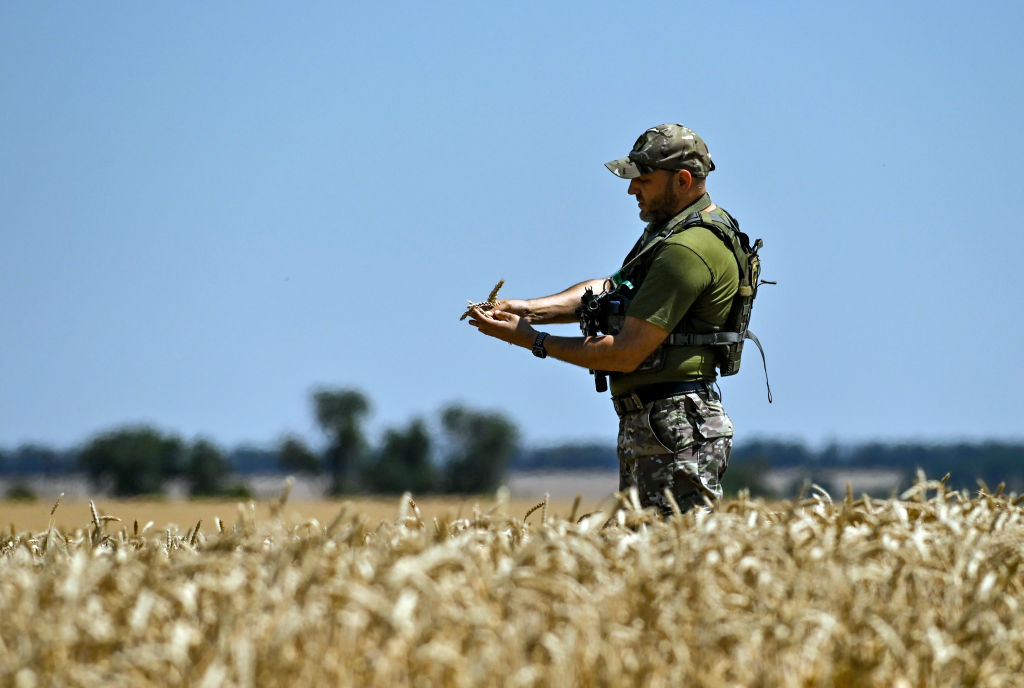
Ukraine was, until the Russian invasion on Feb. 24, a critical exporter of food to Africa. Each month we used to export more than five million tons of staples, mainly through ports now destroyed or blockaded by Russian bombs and mines. By road and rail we can send less than a quarter as much.
So you have Russia to thank for the rise in food, fuel and fertilizer prices across Africa. Then there is the destabilizing role Russian military actors play on that continent. They send Africa not food but, rather, the Russian model of a small but extremely wealthy elite ruling through the barrel of a gun over a sea of poverty.
Africans don’t want this. They want open accountable governments that protect citizens rights.
Ukrainians are no different. In fact, the past, present and future of Africa and Ukraine are entwined. We share a tragic history of colonialism and fighting against oppression. Ukrainians have experienced political liberation only since 1991, when we emerged from the chaos of the collapse of the Soviet Union. This was decades after most African countries won independence, but just three years before South Africa’s liberation from apartheid, an emancipation that we not only applauded but nurtured through military and technical training.
You fought for your independence against colonial powers. Today we are fighting Russian imperialism. And like Africans, we have suffered and withstood previous bouts of external aggression, even genocide. At least seven million Ukrainians, around one-fifth of its population, lost their lives during the Holodomor in 1932/3, a famine engineered by Stalin and his apparatchiks. The invasion by Nazi Germany less than a decade later killed another 6.5 million. Every nation’s history is of course its own, but Ukrainians came to the news of the 1994 genocide in Rwanda genocide with a special empathy, as we do to African nations and communities suffering insecurity today.
And like Africans, we have emerged from these tragedies more determined than ever to be the masters of our own fate.
We have come to realize that independence is one thing, but true independence is another. With our former occupier on our doorstep, we have had to continuously repel Russian interference in our sovereign political and economic affairs, through the Orange Revolution of 2004 and Euromaidan protests a decade later. These events were a powerful response by our citizens protesting Russian meddling. And yet the response by Moscow was to invade our country, first in 2014 and again this year.
Democracy only suited Russia when its preferred candidates were installed in power.
We also connect with African people through a mutual love of freedom. After struggling for liberation from colonial powers, in many cases Africans then fought military and authoritarian regimes. Underlying these struggles was a commitment to common values, of human rights, mutual respect and the rule of law. These are not goals, of course, but processes, parallel journeys between Ukraine and Africa, our shared destiny.
Colonialism left both Ukraine and Africa with economies more suited in some respects to the needs of their imperial masters than their local citizens. We took the best out of this as we have worked to leave that bitter past behind. Our economy is also based on great agricultural strength, matched by the power of our human resources. We look forward to the day when we not only can trade our goods freely once more with the world, but we can lend our agricultural and educational expertise to Africa’s pending economic revolution. It is a source of some pride–and yet great sadness–that there were 9,000 African students studying in Ukraine before Feb. 24. We look forward to welcoming them and others back to Ukraine when this war is over.
Instead of realizing this great promise, today we suffer together. But we want the best thing for future generations, and to determine our own future. That is the meaning of true independence. Slava Africa!
More Must-Reads from TIME
- How Donald Trump Won
- The Best Inventions of 2024
- Why Sleep Is the Key to Living Longer
- Robert Zemeckis Just Wants to Move You
- How to Break 8 Toxic Communication Habits
- Nicola Coughlan Bet on Herself—And Won
- Why Vinegar Is So Good for You
- Meet TIME's Newest Class of Next Generation Leaders
Contact us at letters@time.com